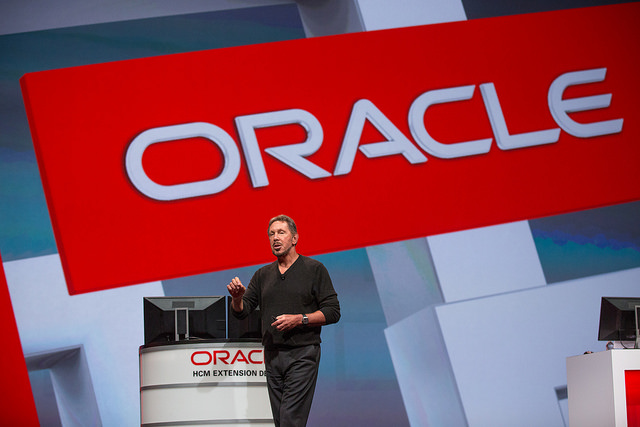 CLOUD
CLOUD
 CLOUD
CLOUD
 CLOUD
CLOUD
Oracle Corp. today pulled back the curtains on the Oracle Cloud Infrastructure Flexible Load Balancer, a new service in its cloud platform aimed at making it easier to add and remove network resources inside enterprise application environments.
Load balancers are a foundational component of enterprise technology environments responsible for managing network traffic. They help divide incoming packets between servers to ensure that work is evenly distributed. A cloud deployment’s load balancer is also responsible for ensuring that there’s enough network bandwidth provisioned to support the inbound traffic.
But though the technology eases certain infrastructure tasks, managing network capacity still requires manual input on the part of information technology teams. Oracle’s Flexible Load Balancer is aimed at easing the task with automation.
“Our vision is to make our infrastructure truly flexible,” Vithal Shirodkar, senior vice president for network, storage, migrations and disaster recovery products at Oracle Cloud Infrastructure, said on a call with press and analysts. In particular, he added, it aims to be more more flexible on scaling up and down than other clouds.
The service provides automated load balancing features for Oracle Cloud deployments that can be set up through a visual console. According to Oracle, IT teams merely have to define the minimum amount of bandwidth that the load balancer should provide to an application at any given time and optionally set a maximum limit. From there, the service automatically scales network capacity up or down within the specified range based on traffic volumes.
Extra bandwidth might be provisioned when a company’s e-commerce storefront website experiences a surge in traffic after a successful ad campaign. When traffic returns to normal levels, the additional network resources are returned.
Simplifying administrators’ work isn’t the only benefit Oracle is touting. The company says that the ability to tailor how much bandwidth is provisioned to workload requirements allows enterprises to reduce costs by not overprovisioning network resources.
A single Flexible Load Balancer instance can provide between 10 and 8,000 megabits per second of bandwidth. The service is priced at a flat rate rate of $0.0113 per active load balancer instance per hour plus an additional $0.0001 for every 10 Mbps of bandwidth used hourly.
David Floyer, chief technology officer at SiliconANGLE sister market research firm Wikibon, said the announcement is significant as part of Oracle’s longer-term strategy to “extend this capability to a complete system with a flexible strategy for CPU cores, memory and storage.” He added that “if it becomes completely seamless and does not need a restart, it becomes effectively serverless.”
The service is the latest in a series of offerings Oracle has introduced over recent quarters to help customers of its public cloud optimize their infrastructure spending. Previously, it added so-called flexible shapes, a type of compute instance that enables users to customize the amount of processing capacity and memory in each virtual machine to avoid provisioning resources they don’t need. In the same spirit, Oracle’s cloud offers the ability to switch workloads to a lower-cost or higher-cost block storage tier without causing any downtime.
Oracle’s most recent quarterly earnings beat analyst expectations thanks partly to growth in its cloud unit. The company’s cloud services and license support business generated revenues of $2.8 billion, up 4% from a year earlier, while the infrastructure cloud services and license support segment brought in $4.13 billion.
With reporting from Robert Hof
Support our mission to keep content open and free by engaging with theCUBE community. Join theCUBE’s Alumni Trust Network, where technology leaders connect, share intelligence and create opportunities.
Founded by tech visionaries John Furrier and Dave Vellante, SiliconANGLE Media has built a dynamic ecosystem of industry-leading digital media brands that reach 15+ million elite tech professionals. Our new proprietary theCUBE AI Video Cloud is breaking ground in audience interaction, leveraging theCUBEai.com neural network to help technology companies make data-driven decisions and stay at the forefront of industry conversations.